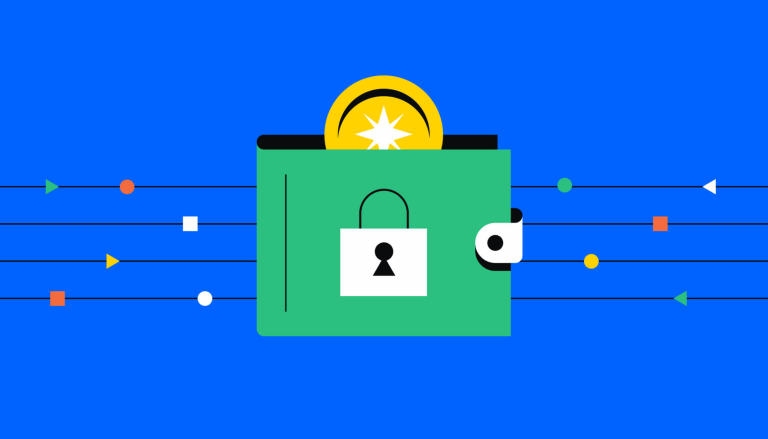What is a crypto wallet?

Definition
Crypto wallets are designed to store your private key, keeping your crypto accessible at all times. They also allow you to send, receive, and spend cryptocurrencies like Bitcoin and Ethereum.
Crypto wallets keep your private keys – the passwords that give you access to your cryptocurrencies – protected and accessible, allowing you to send and receive cryptocurrencies like Bitcoin and Ethereum.
Why are crypto wallets important?
Unlike a normal wallet, which can hold actual cash, crypto wallets technically don’t store your crypto. Your holdings live on the blockchain, but can only be accessed using a private key. Your keys prove your ownership of your digital money and allow you to make transactions. If you lose your private keys, you lose access to your money. That’s why it’s important to keep your hardware wallet safe.
How do you use a crypto wallet?
Crypto wallets range from user-friendly apps to more complex security solutions. The main types of wallets you can choose from include:
Paper wallets: Keys are written on a physical medium like paper and stored in a safe place. This of course makes using your crypto harder, because as digital money it can only be used on the internet.
Hardware wallets: Keys are stored in a thumb-drive device that is kept in a safe place and only connected to a computer when you want to use your crypto. The idea is to try to balance security and convenience.
Online wallets: Keys are stored in an app or other software – look for one that is protected by two-step encryption.
Each type has its tradeoffs. Paper and hardware wallets are harder for malicious users to access because they are stored offline, but they are limited in function and risk being lost or destroyed. Online wallets offered by a major exchange like Coinbase are one way to get started in crypto and offer security features such as entry via a passcode. However, it is essential to be aware of the risks associated with using online wallets. Because your private information is stored online, your protection against hackers is only as strong as your wallet provider's security measures. Therefore, it's crucial to look for features like two-factor authentication. Additionally, being online, these wallets are more susceptible to phishing attacks and other forms of cybercrime. To mitigate these risks, it's advisable to enable all available security features, stay vigilant against suspicious activity, and consider storing larger amounts of cryptocurrency in offline hardware wallets.
Using an app like Coinbase Wallet or Exodus gives you access to your crypto holdings. You can:
Manage all your digital assets in one place
Control your own private keys
Send and receive cryptocurrency to and from anywhere in the world
Interact with usernames rather than long, hexadecimal “public key” addresses
Browse dapps (decentralized finance apps)
Shop at stores that accept cryptocurrency
What’s the difference between the Coinbase app and Coinbase Wallet?
The main Coinbase app (or Coinbase.com) allows you to buy and sell crypto or exchange it for fiat currency and transfer it to a bank account. If you just want to invest in Bitcoin or another digital currency it’s all you need. The Coinbase app will manage the rights to your private keys.
Coinbase Wallet is a separate app that allows you to store your private keys and to send, receive, and spend digital money; browse and use DeFi applications, and more. You don’t need a Coinbase account to use Coinbase Wallet.


